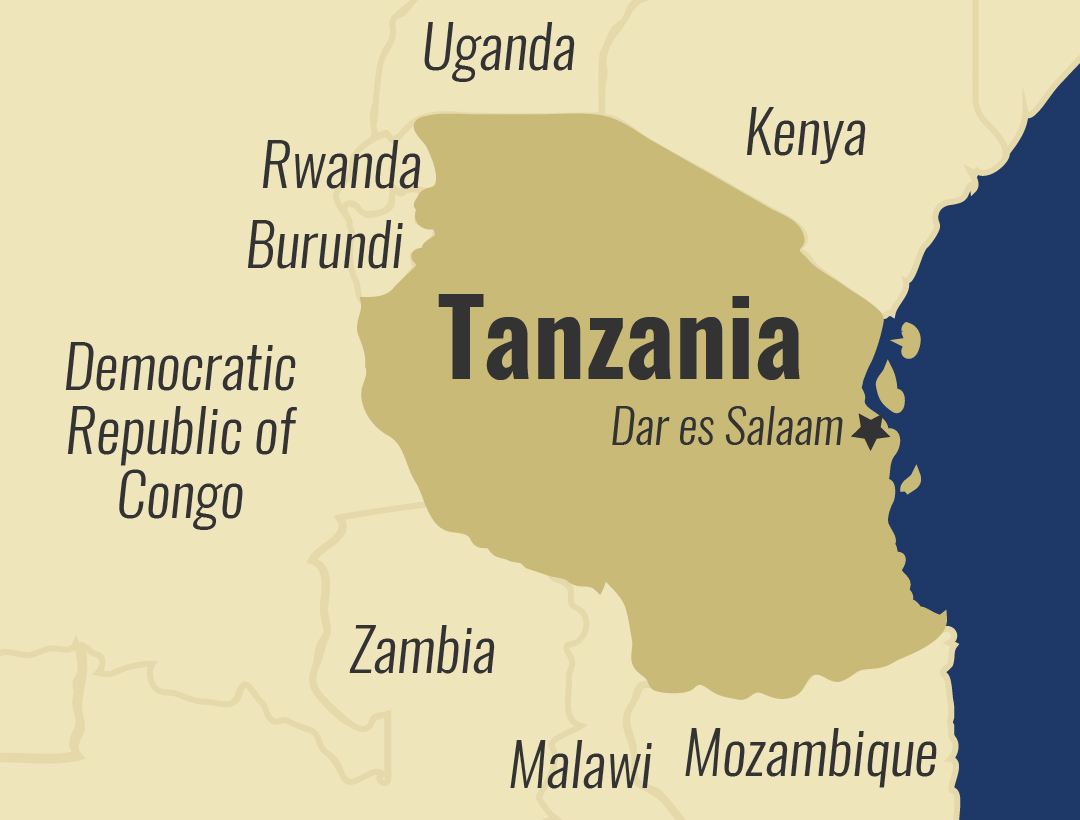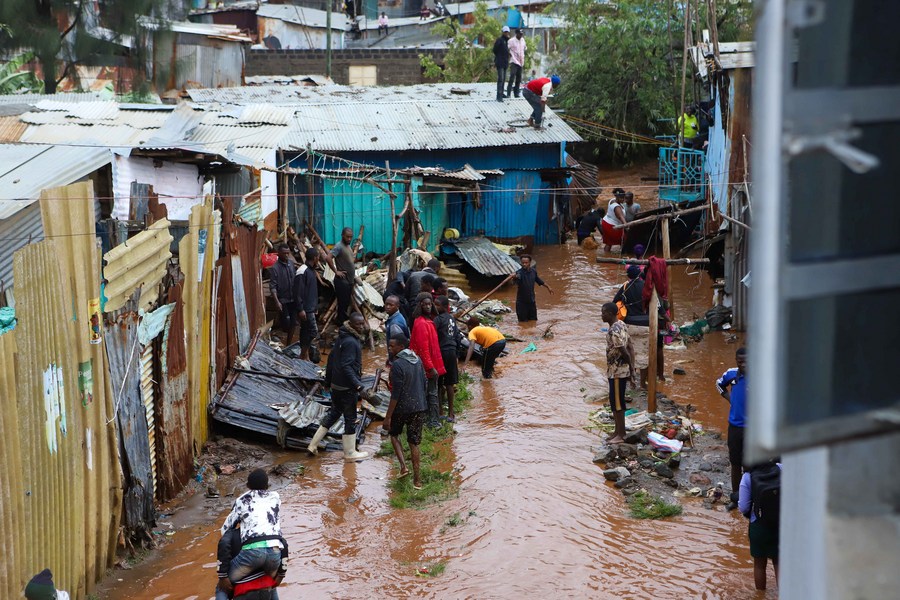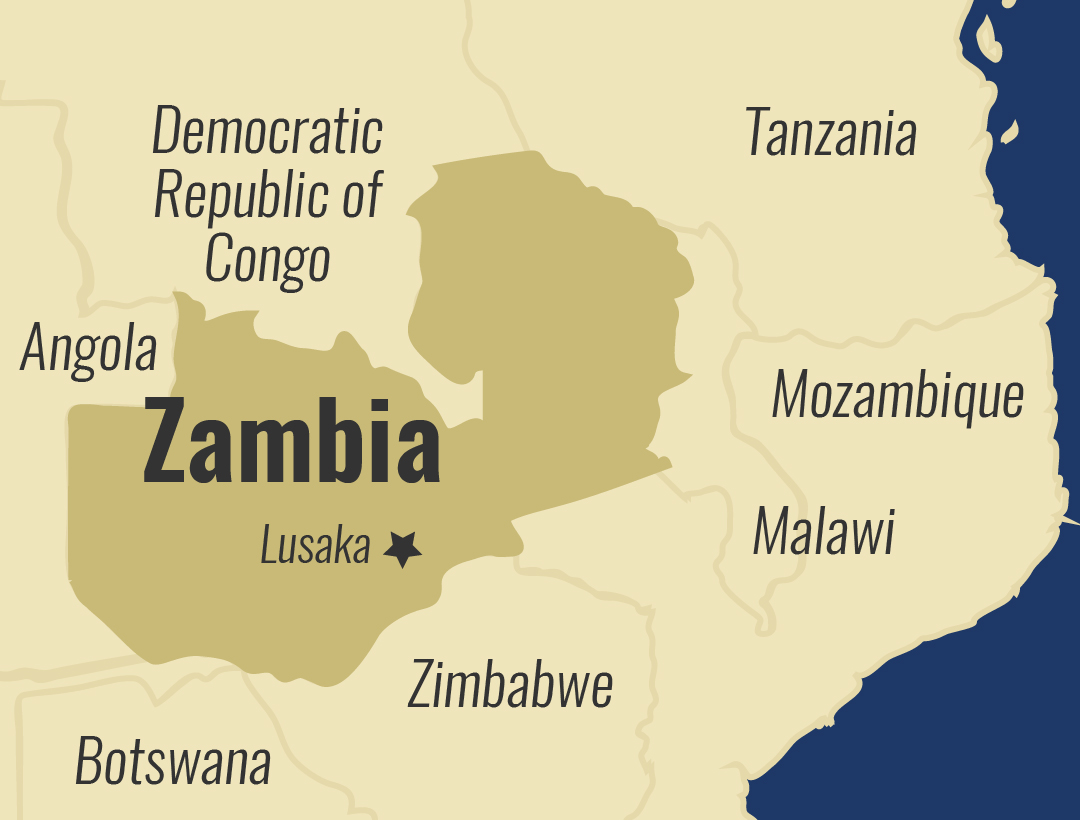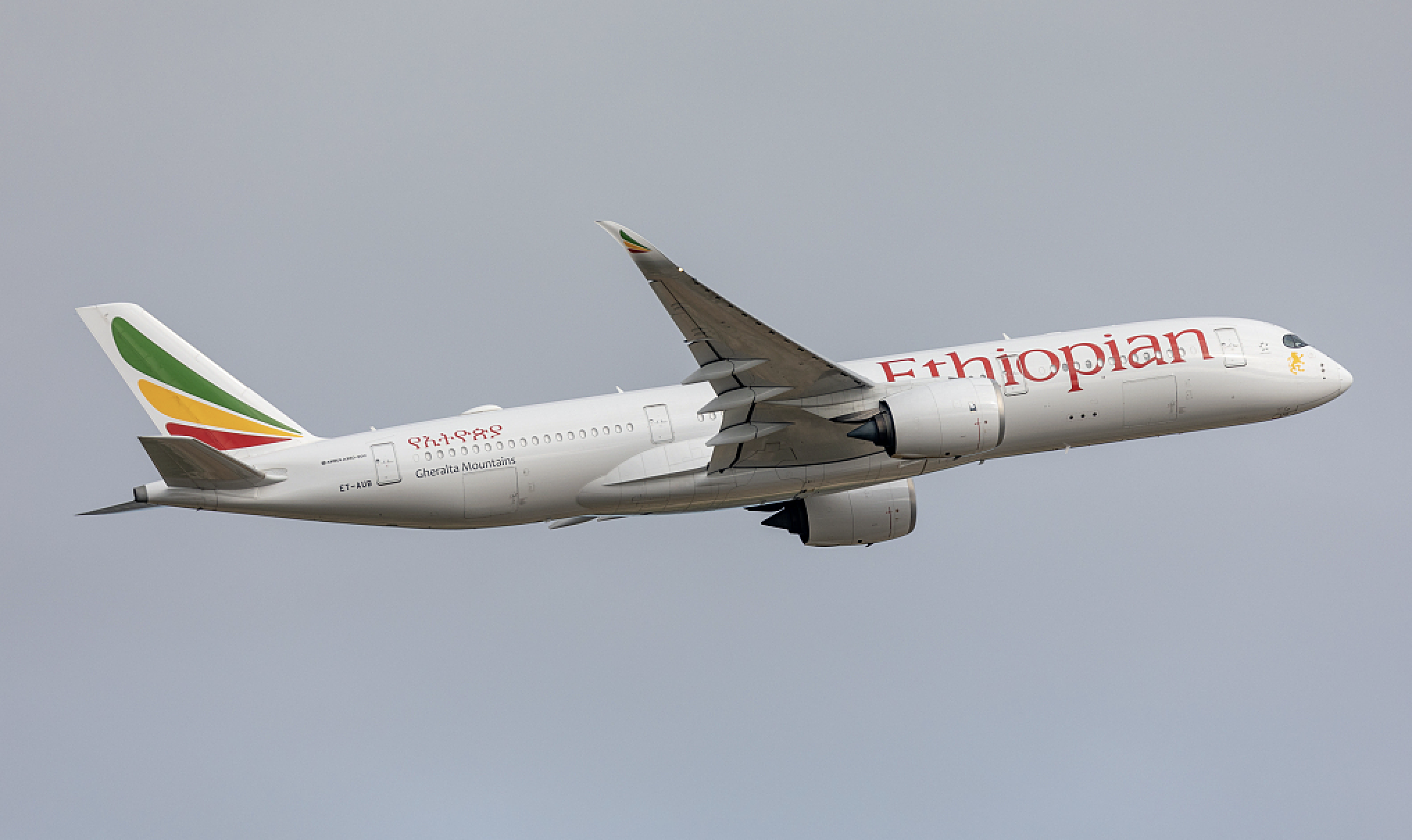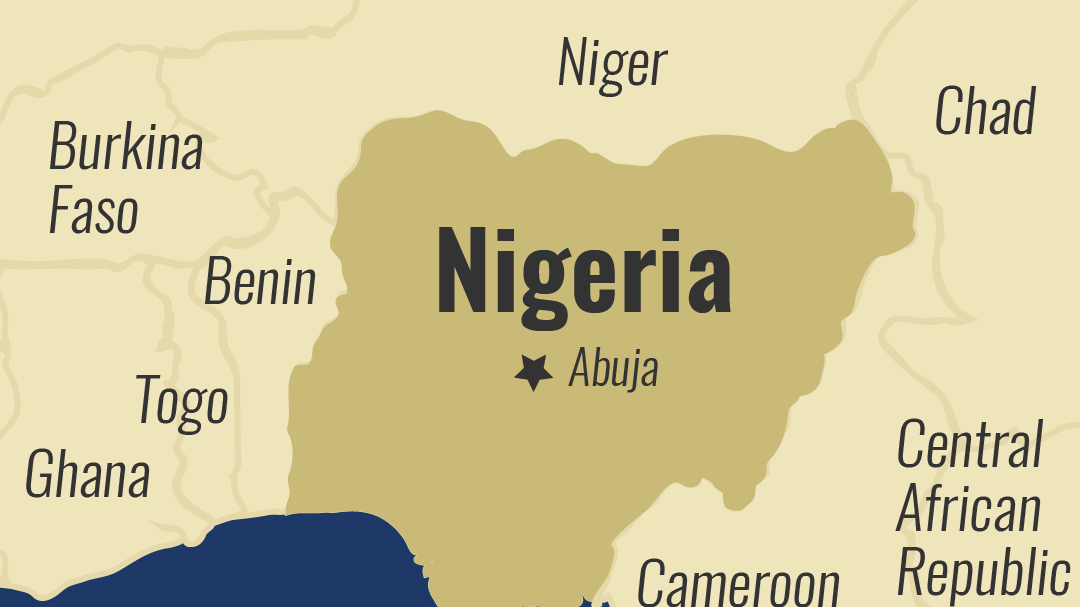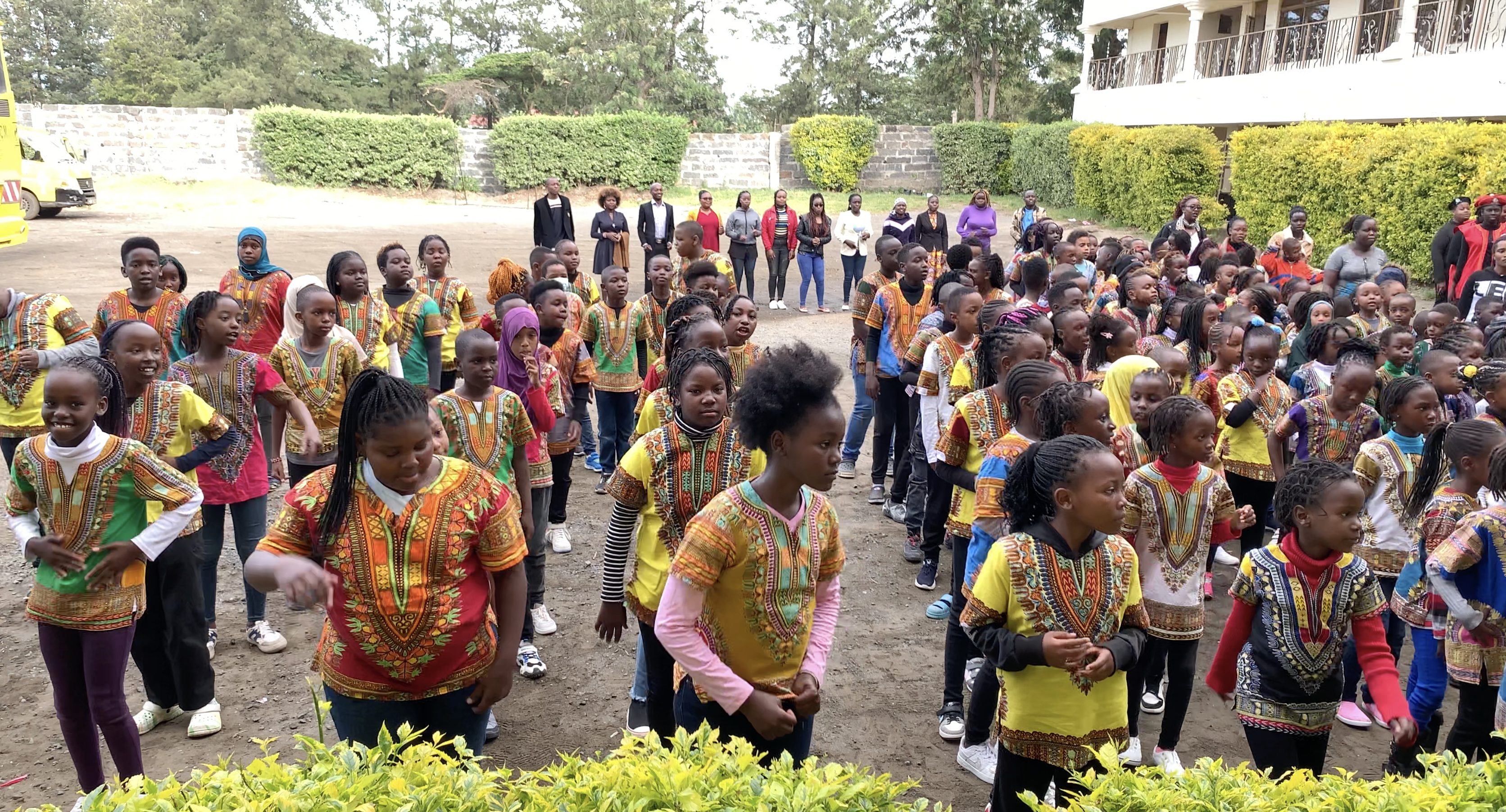
Kenyan school specializes in teaching Afrocentrism
The Nakuru, Kenya-based Children in Freedom School prides itself in teaching Afrocentrism. It is an approach that recognizes the greatness inherent in every African child.
It is evident from the early morning school parade, where students first begin by citing affirmations that portray them as unique, independent African children.
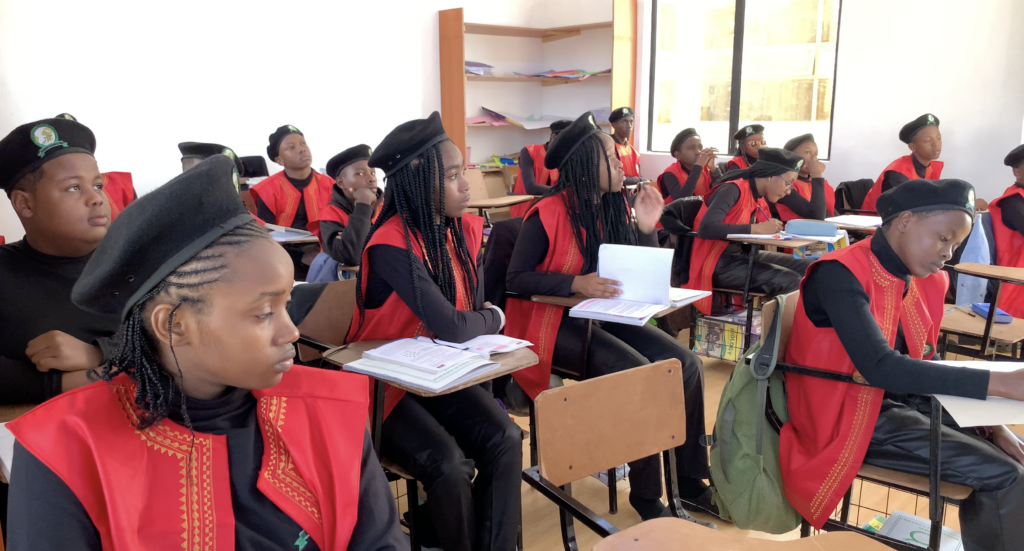
(Students from Junior High School, Children in Freedom School, PHOTO/Gabriel Rotich, CGTN Africa)
In Kiswahili, the narrations include Mimi ni mweusi, naipenda ngozi yangu, naipenda nywele yangu, niko na nguvu, which loosely translates to ( I’m a black African child, I love my skin, I love my hair and I’m strong).
School founded as an alternative to “post-colonial era” curriculum
And unlike children in other schools in Kenya, students here wear African-themed clothes, including colorful Ankara designs, kente, and dashikis as part of their uniform.
The school was founded in 2018, by Dr Utheri Kanayo and her husband Eng. Oku Kanayo after the two realized that education in Africa is based on post-colonial curriculums whose content taught little and often skewed African history and culture and its place in the world.
”The false narrative of Africans… of who we are, has really been propagated, to the point that it has become the truth, to the point that we Africans believe of how low we are, and how not good we are and so this school was set up to reverse that to bring Africans back to the centre”, Dr Kanayo says.
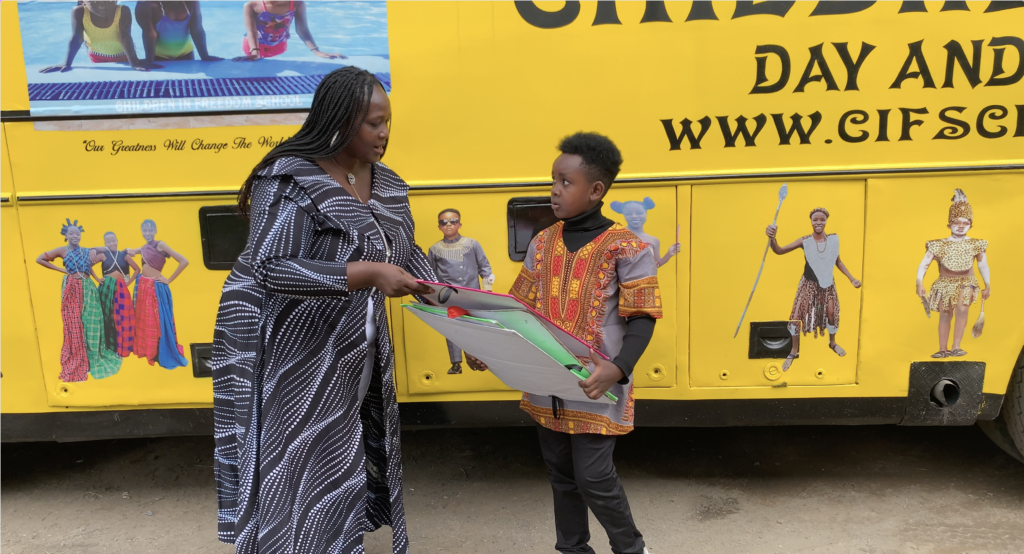
(Loise Muthoni and her son during school drop off. PHOTO/Gabriel Rotich, CGTN AFRICA)
Parent says son flourishing because of school’s Afrocentric approach
Loise Muthoni, whose son, Noel Wathobio, attends the school, says he’s prospering as a result of the school’s Afrocentric approach.
”When Wathobio joined this school in Grade 1, he could not communicate well, he was quite shy and a mama’s boy, but with time he got so confident and speaks Kikuyu very fluently owing to the native language classes they have once a week.”
”The school also tapped into Wathobio’s talent and he’s the current beat box junior champion and Mini Mr Ecological 2023”.
Wathobio is just one of the school’s many present success stories. However, the couple says in the beginning, community members criticized the Kanayos’ approach to education. Theirs was the first school in Kenya to introduce the Afrocentric model.
”The reception when we started, there were people who stated that it’s about time that African-centeredness gets into schools in a very conscious practical way,” said Dr. Kanayo. “But of course, there were those who were suspicious. First of all, Africans themselves link being African… our indigenousness to dark things such as witchcraft or voodoo.
With classes named after African heroes and heroines, to learning and speaking indigenous languages, the school is conscious of reducing Eurocentrism by encouraging students to appreciate being African.
”This school helps other students to know who they are, it helps Black children know their identity and it helps them even be proud of who they are”, said Faith Wangui, another student at the school.
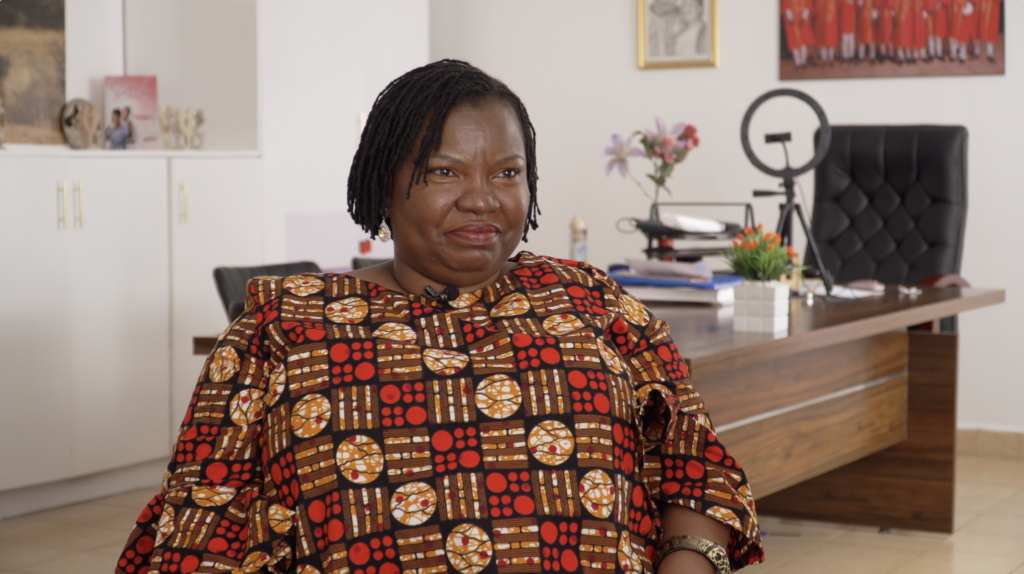
“The school is unique because it has developed my mental well-being,” Sharleen Kipkemoi, a student who sat for her KCPE exams told us. Sharleen scored 402 marks in her exams, a move that the founders say the school also focuses on making sure students learn needed hard skills in addition to learning more about their culture.
School has plans to expand across region
“It’s a really powerful and unique setting where African children are being given the space to thrive, to dream, to think, implement and to change the world,” Dr Kanayo says.
The school has plans to expand across the region.
”Children in Freedom Schools is going places because it has a vision we can’t handle ourselves it has grown so big. Nigeria, Ghana, and Rwanda are some of the countries that are asking us to set up.”
On January 24, the United Nations observes the International Day of Education with UNESCO calling for inclusive and equitable quality education and lifelong opportunities for all.
”When we talk about the International Day of Education we are bringing back what belongs to us, the way we teach our children, the way we embrace love, the way we let children understand other languages, the way we let our children understand that they are the lions”, Eng. Oku Kanayo said.


